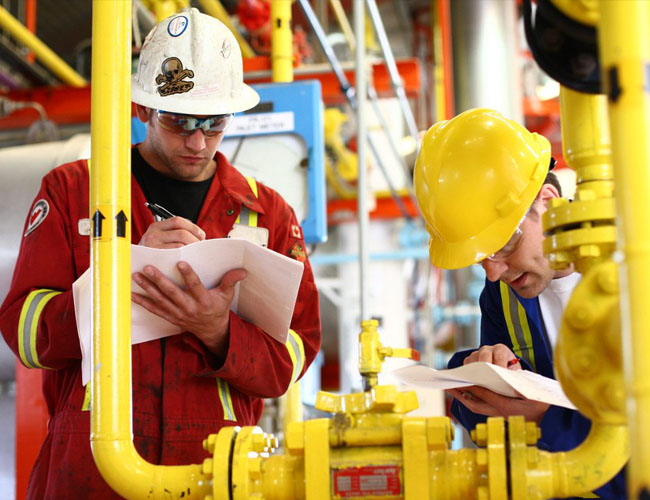Top safety tips for the Oil and Gas industry
The Oil and Gas industry falls well and truly within the category of a high-risk working environment. Few other industries self-regulate more strenuously to continuously improve health and safety. However, PIF has compiled some top tips for maintaining an extra safe working environment.
Everyday working practices need to be rigorously assessed by safety professionals, within a framework of strict regulations, to guarantee the safety of the workforce. However, following these simple measures should help to create a safer working environment as a matter of course.
Maintain dialogue with your workforce
Your workforce knows the ins and outs of an oil rig, or whatever oil and gas environment you operate in. Workforce representatives are always involved in health and safety inspections on oil and gas rigs. So by communicating with your workforce you'll gain a much better understanding of where risks lie. You may also gain an insight into areas that the workers feel uncomfortable and consequently implement solutions can to resolve their misgivings.
Be aware of all hazards
Even minor hazards can quickly become a bigger issue, particularly within the closed confines of an oil or gas rig, so nothing should be taken for granted. Ensure that smaller incidents are routinely logged, to maintain a firm grasp of the situation, and to prevent any safety issues from escalating. Even the smallest cut is noted, and in-depth investigations are put in place to find a solution, during HSE inspections of oil rigs.
Maintain basic safety measures
Slips, trips and falls should be best avoided with good housekeeping. Walkways should be kept clear of tools and debris. Spills should be cleaned immediately. And spell out that these types of measures are expected of everyone. Eye and back injuries can also be prevented with proper personal protective equipment and safe work practices. Eye and face protection should be chosen based on the kinds of hazards encountered.
Protecting from hand injuries can also be achieved through employing appropriate gloves for the job in hand.
Never stop learning
The learning process never ends, whatever industry you're in. The Oil and Gas industry is no exception and sharing of best practice is an ongoing priority. “The industry recognises the importance of joined-up working and engages the workforce and trade unions through offshore safety committees and onshore networks,” according to Oil & Gas UK.
“The industry operates within a goal setting regulatory framework and through publications, workshops and seminars, is a global exemplar of good safety practice,”
Get to the root of any issues
Of course, resolving any minor or major hazards in the short term is an easy enough exercise. But for any industry, a deeper understanding of the underlying causes of any problems must be understood to ensure a the safest possible work environment. For example, implementing proactive strategies – like fostering better communication systems for workers and increasing safety related training – will hopefully ensure a prevention, rather than a cure, approach.
Get the latest process industry news
Interested in receiving even more industry-leading news from Process Industry Forum delivered directly to your inbox? Then sign up to our free newsletter. Bringing you the latest news, trends, innovations and opinion from across the process industry, our exclusive newsletter gives you all the industry insights of the moment in one, easy-to-digest bulletin. Stay ahead of the competition with regular process industry news instalments from PIF.


